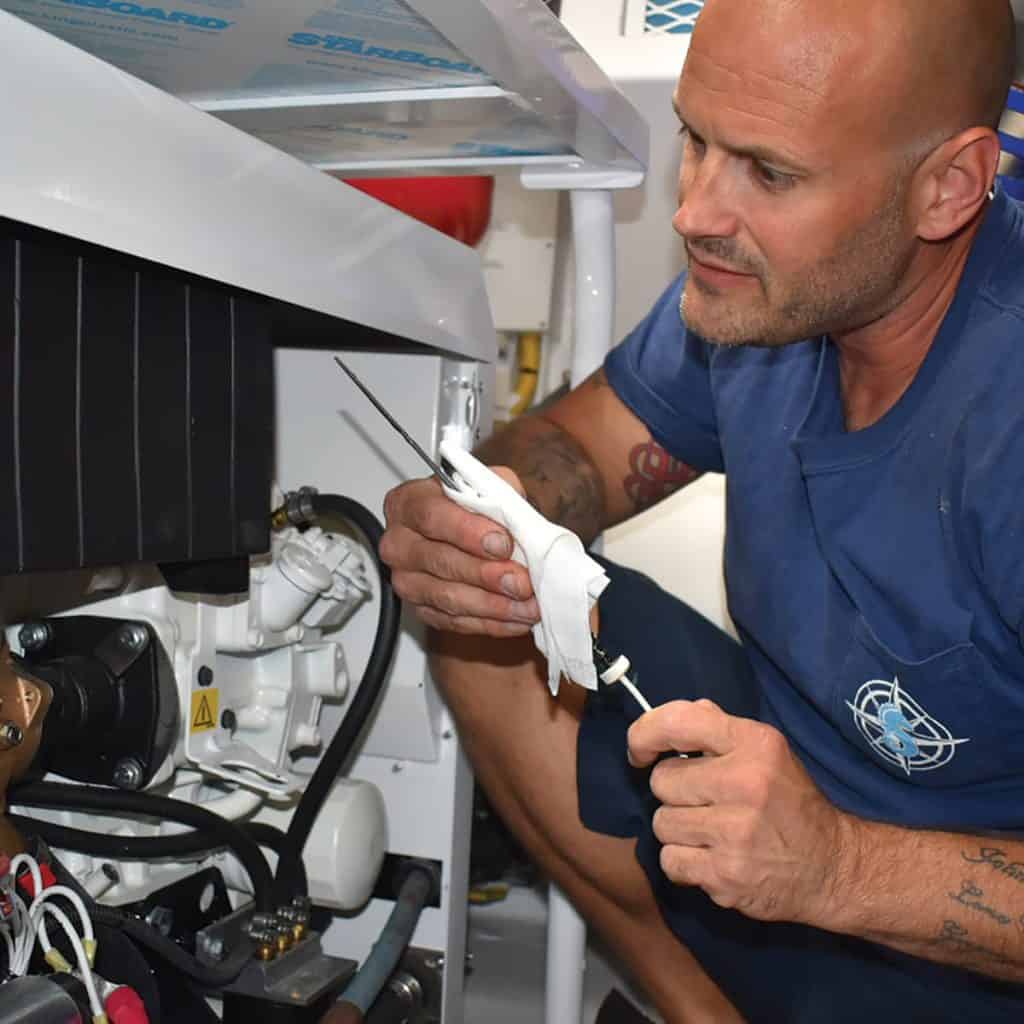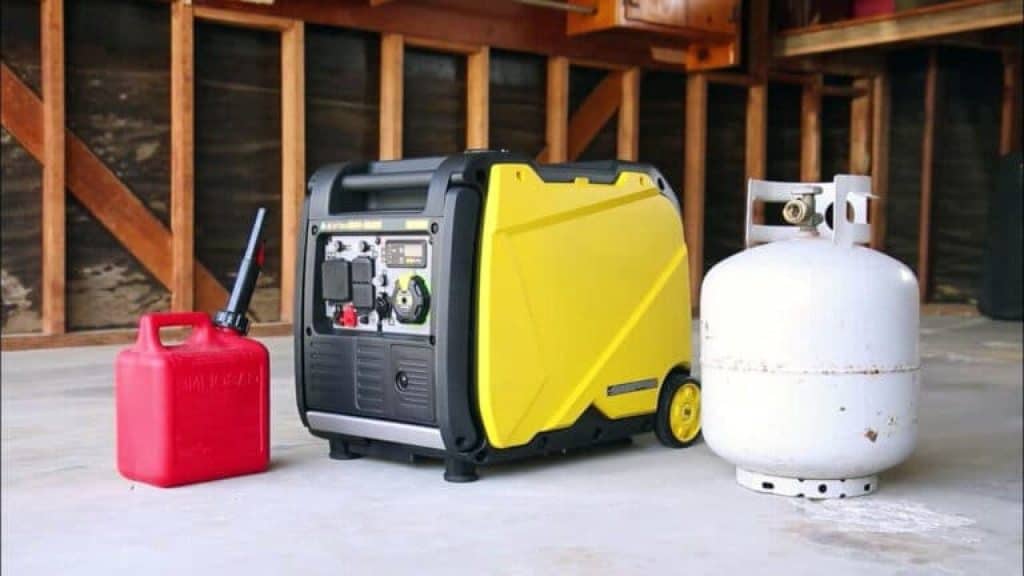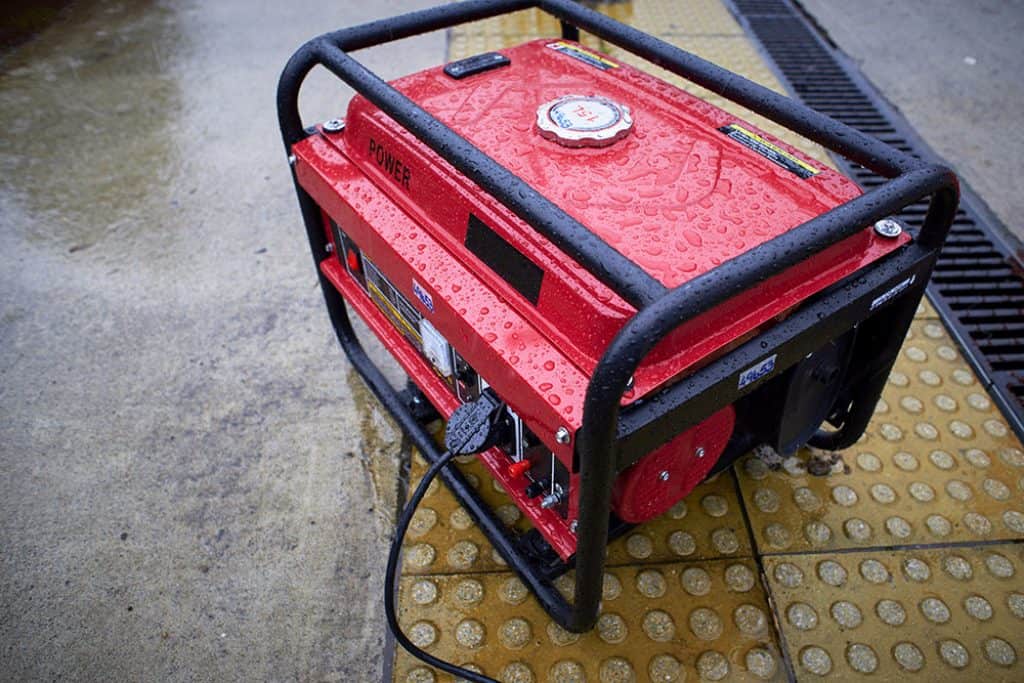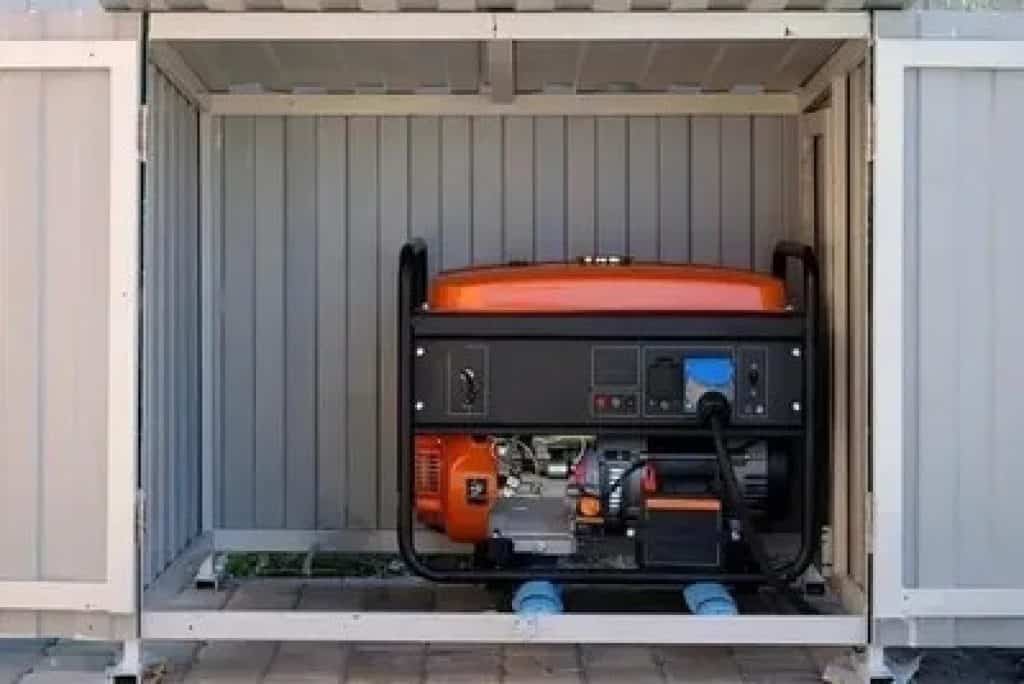
Enjoying some time on the water requires having sufficient power to run necessary equipment like lights and fans onboard. With their portability and ease of use features, portable generators are an ideal choice for powering these amenities when away from shorelines.
Nevertheless, picking out the right model that meets specific vessel requirements isn’t always straightforward. In this guide post, we’ll take an in depth look at significant considerations that must be pondered upon while shopping around- such as fuel types compatible with marine environments , capacity ,and sound performance.
Marine-Specific Design: Identifying Generators Engineered For The Unique Demands Of Boating

When looking into purchasing portable generators suitable for boating activities, start by exploring models built for marine environment’s unique demands explicitly designed accordingly. Such models will feature high resistant material construction like aluminum or stainless steel to combat corrosion caused by exposure to saltwater effectively – equipped with advanced safety measures perfect for guarding against water damage.
Needless to say, these generators’ reliability is impeccable and can withstand challenging environmental conditions like vibration and temperature changes associated with life at sea. Also crucial to keep in mind when selecting a suitable generator is to consider your craft’s size and fuel type requirements that match the generator’s specifications.
For smaller crafts like sailboats or modest sized vessels, electric- or gas-powered generators provide enough power without demanding too much storage space or fuel capacity.
On the other hand, larger boats will need diesel-powered generators that can meet their demand for higher power output and fuel requirements. Selecting the most appropriate portable generator for marine use requires thoughtful deliberation about how frequently it will be utilized.
Opting for an inverter model for boating purposes is recommended if regular usage is planned since these generators produce reliable clean power even when operating at lower speeds. Moreover, they offer significantly less noise than traditional models and possess advanced digital display features ensuring more precise monitoring of electrical output levels.
Taking all such aspects into account can assist in making a well informed decision about which portable generator best fits your boating needs.
Corrosion Resistance: Evaluating Materials And Coatings For Enhanced Durability In Harsh Marine Environments

When it is time to choose a portable generator for your boating needs- be warned: not all generators are created equal! As any seasoned sailor knows all too well, boats are subjected to daily exposure to some pretty brutal conditions out on the open ocean- from salt air erosion rusting from constant water exposure and much more.
If you want your investment in a portable generator for your boat, hold up over time without rusting out or shorting out – there’s one material combination that stands above the rest: stainless steel with high tensile strength and excellent corrosion resistance.
When selecting a portable generator for use on boats, it is important to factor in the challenges of operating in harsh environments. To mitigate damage from moisture exposure, prioritize double-welded seams and heavy duty gaskets when browsing available models.
By doing so, you can feel confident that your equipment will remain functional despite any unpredictable conditions encountered boating activities and along the way.
Power Output: Matching Generator Capacity To Your Boat’s Electrical Load Requirements

Boating enthusiasts love their time on the water but they also need reliable backup power systems when out there. That’s why portable generators are great as they provide power and flexibility.
The most important factor when choosing a generator is ensuring that it is capable of meeting your vessels electrical load requirements. The right capacity will be determined by the number of electronic gadgets you plan on using simultaneously and sizing up should be done based on wattage demands.
This may include appliances like air conditioners, pumps, lights, and microwaves among others. To ensure your generator can handle these demands, it may be necessary to buy one with higher wattage ratings. It is suggested that when considering buying any models with surge protection features and overload protection built in.
These safety measures help protect electronics from power surges that could potentially harm them. In addition, a built-in auto shutoff feature if overloading or overheating ensures proper maintenance measures are being taken by preventing any further damage.
Boating enthusiasts know how important it is to have reliable power sources while out on open waters – but choosing the right portable generator requires careful consideration.
And don’t forget about local regulations surrounding gen set usage at sea. Ensuring compliance with these rules will help guarantee smooth sailing for everyone on board.
With these factors in mind, you’ll be able to confidently select a portable generator that meets all of your boating needs without sacrificing safety or efficiency.
Fuel Efficiency And Consumption: Balancing Run Time And Fuel Availability On The Water

As a boater, choosing the right portable generator is a crucial decision. Fuel efficiency and consumption are the two major factors you need to consider. You don’t want your boating adventure to be cut short due to insufficient fuel nor do you want to spend too much time refilling the tank instead of enjoying your time.
| To strike a balance between run time and fuel availability lets look at some popular models and their fuel economy in terms of run time per gallon: | Generator Model | Run Time (hrs) | Fuel Capacity (gal) |
|---|---|---|---|
| Honda EU2200i | 8 | 0.95 | |
| Generac GP3000i | 11 | 1.06 | |
| WEN 56200i | 7 | 0.83 | |
| Westinghouse WH2200ixlt | 6 | 0.9 |
Generac GP3300i 7154 3,300-Watt Gas-Powered Portable Inverter Generator - CARB Compliant - Advanced PowerRush Technology - RV Essentials - Quiet and Compact Solution - Duplex Outlets - USB Ports
WEN 56200i 2000-Watt Gas Powered Portable Inverter Generator, CARB Compliant
Westinghouse Outdoor Power Equipment 2200 Peak Watt Super Quiet & Lightweight Portable Inverter Generator, Gas Powered, Parallel Capable, Long Run Time
As you can see, there are some models that provide longer run times per gallon of fuel than others. Finding an appropriate generator model for boat trips requires careful thought regarding individual preferences and requirements. For example, those who aren’t bothered by refueling multiple times during their travels but seek longer run time should look no further than Generac GP3000i.
However, if conserving fuel is an utmost priority while still maintaining peak performance levels for prolonged periods of time then Honda EU2200i would serve better. Ultimately though whichever model suits one’s needs must be selected based on personal circumstances; otherwise discomfort or unexpected issues could arise resulting in unsatisfactory boating experiences.
Compact Size And Weight: Finding The Right Fit For Limited Space On Your Vessel

Heading out on a boating adventure soon?
Don’t forget to pack a portable generator! While fuel efficiency is important its also crucial to consider size and weight when selecting the right model for your vessel.
According to yacht captain David Lee, “Space onboard is always at a premium so opt for something compact that won’t take up too much real estate.” Additionally, lighter generators are easier to transport if you need to move them around on soft terrain or up stairs.
Water-Resistant Features: Ensuring Safe Operation In Wet And Humid Conditions

Ahoy sailor! Searching for a boating friendly portable generator?
The good news is, there are plenty of options out there with water resistant features you can rely on! First on that list should be an insulated body and control panel since these attributes protect against corrosion while preventing electrical shorts caused by splashing water or rainstorms.
It is equally important to find a model containing waterproof covers over its outlets and switches to stop moisture from entering the electrical components – you don’t want everything getting wet in an emergency!
Additionally, generators outfitted with GFCI (Ground Fault Circuit Interrupt) outlets are must haves while boating as they provide protection against electric shocks or electrocution caused by wet environments.
Finally, when choosing a suitable generator for your next boating adventure make sure its IPX4 certified – meaning that it pledges protection against exposure to splashing water while being dust resistant and vibration proofed too!
Vibration And Noise Control: Minimizing Disruptions To Onboard Comfort And Communication

As any boating enthusiast knows too well – having a reliable portable generator on board is essential when spending prolonged periods of time on water.
But what happens when that trusty companion starts shaking with fury and emitting ear bursting noises?
The last thing you want during your relaxing getaway is more stress than necessary! That’s why finding options that include solid vibration and noise control features should be at the top of your checklist when shopping for your next unit.
Look out for generators outfitted with rubber feet or mounts – this will greatly reduce any nasty vibrations that could occur while running your unit aboard the boat.
Further, dampen excessive sounds by opting for models equipped with acoustic foam insulation – allowing you all power without having those powerful engine noises interrupting every conversation! Luckily, many modern generators come fitted with excellent muffler systems to address this making sure your generator purrs like a kitten in the background.
Be sure to consider the size and weight of your generator too as lighter generators tend to vibrate more than heavier models. Factor in a comfortable transportability that won’t hog up valuable boat space – it will make all the difference when it comes down to finding the perfect unit!
Inverter Technology: Providing Clean, Stable Power For Sensitive Marine Electronics

Ensuring a reliable power source for your boat is critical which is why inverter technology offers an exceptional choice for marine electronics. Its ability to generate stable and clean electricity coupled with protecting delicate equipment against damage make it ideal. Below are further details about this innovative technology:
| Feature | Benefit |
|---|---|
| Inverter Technology | Produces stable and clean electricity |
| Low Total Harmonic Distortion (THD) | Shields electronic equipment from electrical spikes and surges |
| Quiet Operation | Minimizes noise levels during boating enhancing the overall experience |
| Auto Idle Control | Reduces fuel usage & noise through engine speed adjustments |
With sophisticated microprocessors controlling engine speed based on load requirements, inverter generators can operate at lower speeds while producing the required power.
The last thing you want while out at sea is having voltage fluctuations causing significant damage to your valuable marine electronics. Fortunately, inverter generators prevent such an occurrence with their low total harmonic distortion (THD).
A serene days fishing trip can be spoilt quickly by noisy engines. However, with their quiet operation capabilities inverter generators offer an undisruptive alternative that doesn’t interfere with the surroundings’ natural habitat or cause any disturbance among fellow boaters.
In summary, if there was ever a perfect choice for powering up boats – it would undoubtedly be inverter generators!
Safety Features: Safeguarding Against Hazards Like Overloads, Overheating, And Carbon Monoxide Emissions

As any experienced boating enthusiast knows safety must always come first – especially when it comes to selecting a portable generator onboard your vessel. After all, there are many potential hazards to consider and account for – from overloading issues to carbon monoxide emissions from engine exhaust fumes.
Luckily, today’s generators include many built-in protections that provide peace of mind while on board; features like automatic shutdowns when temperatures get too high or if currents surpass recommended levels are commonplace across more sophisticated models nowadays.
Some even come equipped with sensors designed explicitly to detect dangerous gases like carbon monoxide so that you’ll always know if such circumstances arise – alerting you quickly enough that immediate action can prevent harm from happening!
Finally, some modern versions feature low noise technology as well as high levels of reliability overall thanks to advanced engineering – ensuring boaters enjoy nothing but an excellent boating experience at sea!
Ease Of Maintenance: Simplifying Routine Checks And Repairs For Hassle-Free Boating Adventures

Don’t let maintenance concerns hold back your love for boating – with careful consideration of important features when selecting a portable generator upkeep can be surprisingly easy and stress free. One key factor is choosing reliable parts that minimize the risk of breakdowns and reduce repair costs while offering superior performance and efficiency.
But accessibility is just as important with easy-to-reach components that simplify routine checks and repairs. To ensure you’re getting the highest quality for your investment opt for a reputable brand name backed by positive reviews from other boaters.
Longevity is also important so look for durable parts that resist corrosion and minimize the need for frequent repairs or replacements.
With these features in mind you’ll be prepared to find the perfect portable generator to power your boating adventures for years to come. Investing the necessary effort into preparing yourself will greatly enhance your ability to navigate unexpected obstacles during your time on the water.
Being proactive and anticipating potential issues beforehand is key to ensuring a successful boating experience.
Frequently Asked Questions

What Is The Maximum Power Output For A Portable Generator For Boating?
Portable generators for boating come in all shapes and sizes but one thing is certain – without one onboard your vessel you could soon find yourself without power when it matters most! These handy pieces of kit are typically measured in watts; with smaller models producing between 2 7.5kW of energy while larger counterparts are capable of generating up to and beyond 12kW.
Before making your purchase decision however be sure to carefully assess the wattage needs of all your appliances so that you select a generator which can handle everything effectively.
How Does Fuel Efficiency And Consumption Impact The Run Time Of A Portable Generator?
No boater wants their day out on the water cut short due to limitations with their equipment – which is why choosing a portable generator that prioritizes efficiency is key when out at sea! It all comes down to two main factors: how well a given model uses its fuel and how much is consumed during operation.
Choosing a less efficient generator increases the chances of running out of power prematurely. However, selecting one that has been designed with fuel efficiency in mind results in longer periods of safe and consistent usage!
What Safety Features Should I Be Aware Of When Using A Portable Generator?
Portable generators are incredibly useful tools that can help you power appliances during blackouts or off grid situations; however, they require careful handling to avoid accidents or injuries. Always prioritize safety by reviewing the manufacturers instructions thoroughly and checking for any loose or damaged parts before turning on the device.
Adequate ventilation is crucial as these machines emit high levels of carbon monoxide – position them in a well ventilated area far from flammable materials at all times.
Never touch hot surfaces or rotating parts with bare hands as this could result in severe burns while waiting until the machine cools down entirely before adding fuel.
Is There An Easy Way To Reduce Noise And Vibration From A Portable Generator?
Portable generators are incredibly useful devices but can be incredibly loud as well. Fortunately, there are ways you can reduce their impact with proper mounting techniques! Balancing is key when it comes to minimizing vibrations during use which helps immensely with overall noise output as well. But why stop there when you can go even further by investing in soundproofing materials?
Options such as acoustic foam or rubberized mats help create additional dampening effects so you barely even notice the machine is running! To top it off choose a stable surface when mounting your generator for a perfectly quiet experience.
What Maintenance Is Required To Operate A Portable Generator Safely?
Taking care of your portable generator goes beyond simple clean ups. Staying informed about necessary maintenance checks is equally important for safe operation on all fronts! One essential component of regular maintenance includes regularly checking oil levels in addition to keeping an eye on fuel levels since both can affect how efficiently your unit runs.
It is also important to never miss any loose connections around each part since they work collectively within electrical circuits that power different elements of your machine properly over time – without breakdowns or accidents happening due caused by potential errors down these circuits if left unchecked over time! Performing consistent check ins on air filters and spark plugs every three months ensures optimal performance while also improving longevity.
Also, inspecting the muffler annually prevents blockages from building up and keeping everything running smoothly.
Lastly, don’t forget to fill up your fuel tank regularly when your generator isn’t running.
This is crucial to prevent moisture buildup inside that can cause rust and other issues down the line.
Conclusion

When it comes down to selecting an adequate portable generator for boating adventures or even river crossings – one must invest time researching some crucial prerequisites before committing financially.
Things like maximum output capacity power ratios along with efficient fuel usage optimization practices will enable sustainable usage over prolonged periods of time without fear of depletion or malfunctioning issues arising whilst unplugged from conventional power outlets on land.
Furthermore, sound attenuation mechanisms along with vibration reduction options should also be considered to ensure a smooth and peaceful boating experience for all onboard.
Always remember – careful considerations before purchases can make all the difference in the long run.









